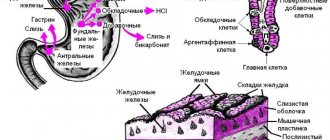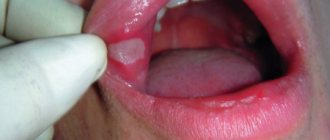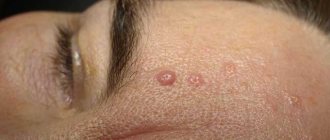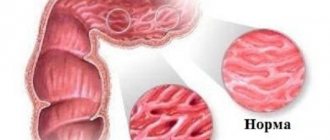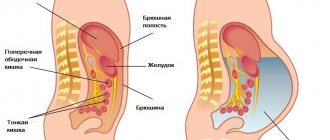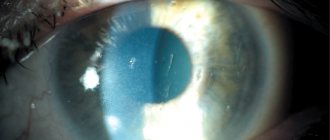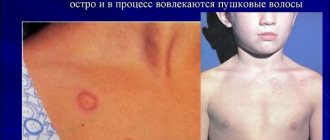Hyperhidrosis.
Hyperhidrosis is increased sweating throughout the body or in certain areas of the body: skin folds, face, palms and feet. Excessive sweating is a problem that many people face. It causes a person to feel embarrassed due to the unpleasant odor, which persists even when using deodorants.
A large number of sweat glands are concentrated on the palms, armpits and feet. These are the areas of the body that sweat most often. They periodically release moisture in which salts and organic compounds are dissolved. But if the moisture from the palms evaporates quickly and freely, then with the feet things are much more complicated.
The fact is that the feet are constantly covered with shoes and socks. As a result, moisture evaporates poorly, socks and shoes become wet, creating favorable conditions for the growth of bacteria and the development of fungus. They are what cause the characteristic foul odor.
Sweating is a normal physiological function of the skin. However, under the influence of provoking factors such as stress, anxiety, physical activity, high ambient temperature, the sweat glands begin to work in increased mode. In this case, excessive sweating should not be considered as a deviation from the norm. This is a normal reaction of the body. You just need to maintain personal hygiene and use products that reduce hyperhidrosis.
If excessive sweating is associated with metabolic disorders, endocrine diseases, vascular diseases, then comprehensive treatment of the body is necessary. Hygiene procedures help here only for a short time; increased sweating and odor, as a rule, do not disappear anywhere and persist for a long time.
How to get rid of sweat: surgical treatment methods, use of antiperspirants
Experts themselves admit that the effectiveness of drug therapy is quite low, especially taking into account the pronounced adverse reactions. That is why more and more patients are resorting to a radical method of treating excessive sweating - surgery.
Sympathectomy
Regulation of the activity of all tissues and glands, and sweat glands are no exception, is carried out by the nervous system. The transmission of impulses occurs along nerve fibers. During a sympathectomy, the doctor compresses the nerve endings in the problem area. The operation is a minimally invasive surgical procedure, but is performed under general anesthesia and requires several days of hospital stay.
Curettage
Indicated for severe hyperhidrosis. During the operation, the surgeon removes part of the sweat glands. However, such a procedure is carried out only to eliminate excessive sweating in the armpit area. Surgical intervention is traumatic, but radically solves the problem of hyperhidrosis in almost all patients.
Skin flap removal
During the operation, the doctor excises the skin under the armpits. The procedure guarantees an irreversible result, but is fraught with a number of complications. This is the appearance of large areas of scar connective tissue.
Laser therapy for hyperhidrosis
This treatment method is the safest and is becoming increasingly popular. However, the procedure is only suitable for eliminating hyperhidrosis in the armpits. A tip generating a laser beam is inserted under the skin through a micropuncture. It selectively destroys some of the sweat glands, and the remaining ones take on the function of thermoregulation.
A worthy alternative to surgical treatment in getting rid of sweat is physiotherapy. Iontophoresis is the most effective. The essence of the procedure is to influence the problem area with direct current with predetermined parameters of strength and frequency. This reduces the secretory activity of the sweat glands. A positive result is noted in 95% of cases.
The simplest and safest method of getting rid of excessive sweating is the use of antiperspirants. However, some patients are not suitable for conventional products sold in cosmetics departments. Doctors recommend using special medical products based on magnesium, zinc and aluminum salts. Most of them are universal and suitable for application to any part of the body.
The most famous product in this group is Dry Dry antiperspirant, made in Sweden. No less effective are the products of Clinique, Vichy, Biotherm, which specialize in the production of professional medicinal cosmetics. Such antiperspirants are not cheap, but the results from one use last up to 3-4 days.
In addition to solving the problem of how to get rid of sweat, these products stop the proliferation of pathogenic flora. This prevents the appearance of unpleasant odors. There are also products on the market designed to treat shoes to avoid fungal infections and hyperhidrosis of the feet (for example, products from Salton or Sholl).
Hyperhidrosis of various zones.
- Excessive armpit sweating is the most common problem. It is characterized by wet marks on clothing that, when dried, leave behind yellow, red, or even purple marks.
- Excessive sweating of the feet is a problem that also worries many. Very often, foot hyperhidrosis is associated with changes in skin acidity, which provokes the development of fungal infections. In this case, increased sweating and an unpleasant odor persist even after washing the feet.
- Hyperhidrosis of the palms is usually associated with an unstable human nervous system. Such people are very emotional, take everything to heart and worry about every occasion. The palms of such people are always cold and wet.
- Not only your palms, armpits and feet can sweat, but your entire body. This type of sweating is typical for overweight people. Droplets of sweat can flow down the back, stomach, groin area, and under the breasts in women, causing irritation and abrasions. Such hyperhidrosis can provoke the development of various skin diseases.
Proper nutrition
Treatment of excessive sweating with diet therapy is permitted only after consultation with a nutritionist and gastroenterologist. It should be borne in mind that the effectiveness of this treatment appears only in the early stages of the development of hyperhidrosis.
You should exclude the following foods from your diet:
- chocolate, green tea, sweet carbonated drinks, energy drinks, coffee - products containing caffeine are prohibited for use in the treatment of hyperhidrosis; one of the effects of caffeine is vasodilation and increased sweating;
- pepper, mustard, wasabi, horseradish, coriander - even in small quantities, spices provoke sweating;
- alcoholic drinks - contribute to the dilation of blood vessels, which provokes increased sweating.
It is recommended to consume more foods enriched with vitamins, minerals, nutrients, microelements, and biologically active substances.
The following products can have a positive effect on enhancing the therapeutic effect:
- kohlrabi cabbage;
- carrot;
- buckwheat;
- green lettuce leaves;
- parsley and dill;
- figs
It is important to maintain a drinking regime. It is necessary to drink up to 2 liters of water in small quantities throughout the day.
Causes of excessive sweating.
Most often, hyperhidrosis is localized in the palms, feet, large folds and face. Excessive sweating can occur in the following cases:
- If you have endocrine diseases (menopause in women, diabetes, obesity);
- During puberty in adolescents;
- In emotionally unstable people;
- For flat feet;
- For a disorder of the central nervous system, such as Parkinson's disease, stroke or brain injury.
- If you have chronic lung diseases, including tuberculosis;
- With a sharp decrease in blood sugar levels.
- Genetic predisposition.
- Insufficient body hygiene.
- When wearing narrow or rubber shoes, synthetic clothing.
Physiotherapy
It is used for local hyperhidrosis of the feet and palms. It consists of administering medications that block sweat secretion using an electric field or direct current.
Electrophoresis was invented before iontophoresis; the essence is based on the introduction of colloidal and protein preparations diluted in a liquid medium under the influence of an electric field.
Iontophoresis delivers medications to the required location under the influence of a constant galvanic current.
Systematic implementation of these procedures will allow you to get rid of profuse sweating forever. Before starting treatment, you must consult your doctor and undergo a series of tests.
Prevention of hyperhidrosis.
Hyperhidrosis not only causes a decrease in self-esteem in a person, but also causes a lot of complexes and various skin diseases. Excessive sweating is a favorable place for the growth of bacteria and fungi. Excessive sweating can be accompanied by diseases such as lichen versicolor, streptoderma, the appearance of purulent acne, etc. What to do to avoid the unpleasant consequences of hyperhidrosis? So:
- First of all, it is necessary to observe the rules of hygiene.
- Use products that reduce excessive sweating (tar soap, Teymurov soap or spray, shower gels containing zinc pyrithione)
- Use deodorants, creams, powders.
- Socks, stockings, tights must always be clean. You should not wear socks that you have already worn.
- If the shoes are wet, they need to be dried. For these purposes, there are special devices that will help not only dry shoes, but also disinfect them.
- Shoes should be of high quality and made from natural materials.
- If possible, replace the insoles with new ones or wash them.
- The inside of the shoes must be periodically wiped with alcohol, formidron, and vinegar. This treatment will kill all pathogenic microbes and fungi.
- Change your shoes at work.
- If there is a fungus on the feet, it must be cured. There are special creams, ointments, deodorants and solutions for this.
- If there are diseases of the internal organs, comprehensive treatment is necessary.
- For particularly sensitive and emotional people, it is recommended to take sedatives.
- People with increased body weight need to lose weight and stick to a diet. In their case, nutrition must be balanced and well thought out. The first thing you need to do is give up sugars.
Be healthy!
Causes of high sweating
The problem of extremely high sweating in humans has been known to medicine for a long time. There is even a special term for it - hyperhidrosis (Greek - a lot of water). At the same time, it must be said right away that the disease does not pose any direct health risks - scientists classify it as a “social disease” - one that can cause a person to have problems being among others of his own kind. And then diseases associated with social rejection may arise - nervous breakdowns, depression, in the worst case, everything can lead to a suicide attempt.
However, all these gloomy prospects open up only if you do not fight hyperhidrosis and do not perceive it as a problem. Doctors and scientists have a different opinion and argue that excessive sweating can and should be overcome. They even developed a classification of hyperhidrosis based not only on the volume and key areas of sweating, but also on the level of public rejection.
So, according to the degree of severity, excessive sweating is divided into:
- Mild (increased sweating, but this does not cause social problems);
- Moderate (heavy sweating, slight social rejection);
- Severe (constant smell of sweat, wet spots on clothes, almost complete social rejection).
According to its prevalence, hyperhidrosis is divided into:
- General (increased sweating is characteristic of the whole body);
- Local (increased sweating is typical for certain areas of the body).
Both classifications do not contradict each other, for example, a person may have mild general or severe local hyperhidrosis. Experts note that the general subtype is extremely rare; more often people suffer from the local form. That is why it would be useful to understand the reasons for increased sweating in different parts of the body.
Manifestations in endocrine diseases
Generalized hyperhidrosis is often a sign of abnormalities in the endocrine system, such as diabetes mellitus and obesity. In diabetes, elevated sugar levels provoke general hyperhidrosis of the upper body. A person sweats heavily in the armpits, chest, face and neck. In the lower extremities, the process of thermoregulation is disrupted, moisture does not leave the sweat glands.
Obesity is accompanied by increased sweating during physical activity, after eating spicy, fatty foods. For endocrine diseases, therapy consists of eliminating the root cause of the pathology.
General principles of therapy
Treatment must be selected individually depending on the cause of the problems. To get rid of severe sweating throughout the body, you should definitely follow these recommendations:
- take a shower every day;
- systematically wipe the skin with a damp towel;
- change things often;
- wear clothes, underwear and shoes made from natural materials;
- adhere to a diet that involves excluding spicy foods, hot and fatty foods, alcoholic beverages, strong tea, coffee and chocolate.
The use of antiperspirants helps to cope with excessive sweat production . These cosmetics affect the sweat glands, which are located in the armpits, and leads to a narrowing of their ducts. This ensures a reduction in the amount of sweat produced.
Antiperspirants are available in solid, liquid and aerosol forms . Aluminum chloride will help cope with excessive sweating. Preparations made from aluminum with zirconium are considered more effective. These substances block the activity of the sweat glands, while the volume of sweat produced remains at the same level.
Milder agents include difemanil methyl sulfate. It prevents impulses from reaching the centers of sweat production, which allows you to reduce the amount of sweat. Such substances provide a long-lasting effect, but they must be used very carefully. This is especially true for people with sensitive skin.
Lemon as an anti-sweating remedy
Lemon is a good anti-sweating remedy. Like vinegar, due to its low pH it has an astringent effect , an acidic environment also helps to destroy pathogenic and conditionally pathogenic microflora. In addition, the pleasant aroma allows you to use lemon as a natural deodorant.
Important! Recent scientific studies have proven that regular use of lemon can lead to photophobia, as well as sunburn on the skin, even after a short stay outside. To avoid this, “lemon” products must be used at night.
First, let's look at how you can use lemons to cope with armpit sweating:
- Mix a teaspoon of lemon juice and baking soda.
- Apply this paste on your armpits using a cotton pad.
- Exposure time is from 20 to 30 minutes, then the paste must be washed off with clean water without soap.
- Repeat the procedures for a month.
What to do and who to contact?
It is extremely difficult to eliminate profuse sweat on your own without identifying its source. If you have a problem, contact a highly specialized doctor, who, after diagnostic procedures, will prescribe the necessary remedy against profuse sweating. It is worth contacting a therapist, nephrologist, endocrinologist, oncologist, cardiologist and other doctors. The table shows diagnostic procedures that identify the cause of profuse sweat.
| Diagnostic methods | Procedures |
| Instrumental | Examination of internal organs using ultrasound |
| Chest X-ray | |
| ECG | |
| CT and MRI | |
| Laboratory | General laboratory examination of blood and urine |
| Donating blood for biochemistry | |
| Tests for hormones and glucose | |
| Bacteriological culture to determine infection |
Head
There are many reasons for increased sweating on the head, but not all of them are directly related to hyperhidrosis. Let us first separate those that are quite common, but have nothing to do with the problem:
- ARVI and colds.
- Chronic infectious and oncological diseases.
- As a manifestation of an allergic reaction
- Side effects of certain medications;
- Stress and nervous condition.
- Metabolic disease.
As you can see, there are more than enough reasons for hyperhidrosis. However, scientists believe that the main cause is increased activity of the sympathetic nervous system, namely arousal. Thus, the key cause of increased sweating is stress. Sensitive, nervous, touchy people are more prone to increased sweating on the head.
Currently reading: Why are my baby's hands and feet cold?
Hands
Hyperhidrosis of the hands, especially the palms, is one of the most common types of increased sweating in general. Long-term observations have made it possible to identify the main causative agents of this problem:
- Stress. Constant nervous tension is one of the main reasons for increased sweating on the palms. If such a problem arises, then perhaps it’s time for a vacation, or a change of scenery;
- Chronic infections. As in all previous cases, infectious diseases are one of the main causes of hyperhidrosis, including the hands;
- High levels of catecholamines in the blood. It's about adrenaline. Some people's hands begin to shake at the slightest excitement. Many people unfairly associate this with alcoholism (which can also cause hyperhidrosis), but most often the cause is an increased amount of adrenaline in the blood. It also has a very negative effect on the amount of sweat produced;
- Vegetovascular dystonia. This disease is isolated as the causative agent of palmar hyperhidrosis. It is noted that patients with this pathology very often complain of constant sweating of the palms. The exact connection between the two problems has not yet been established, but it undoubtedly exists;
- Heredity. Hyperhidrosis, as noted above, can be inherited. Excessive sweating in the hands is no exception.
Is there another remedy for underarm hyperhidrosis?
In addition to traditional medical methods, there are also folk remedies that allow you to get rid of armpit hyperhidrosis. If sweating usually occurs during emotional stress, you can use sedatives - motherwort, valerian, lemon balm, St. John's wort. Infusions of these herbs are consumed several times a day, diluted with water in a 1:1 ratio.
Treatment of armpit hyperhidrosis with folk remedies may also include the use of baths and lotions. For this purpose, decoctions of oak and sage bark are used; Tampons are soaked in them and applied to problem areas, or used for wiping. Oat decoction, tincture of walnut leaves, chamomile tincture, and lemon juice are also suitable for rubbing.
Treatment of armpit hyperhidrosis at home should include not only the fight against sweating, but also its consequences: irritation, dryness, redness of the skin. To do this, you can use special cosmetics, for example, products from the “La-Cri” series. They contain extracts of medicinal plants and do not cause allergies. The series produces a cleansing gel that will help remove impurities from the skin, as well as an emulsion and cream that will help restore damaged skin, eliminate redness and irritation.
Traditional methods of treating sweating
Eliminating excessive sweating with physiotherapeutic procedures is not affordable for everyone and not everyone wants to use such methods on themselves. Therefore, you can use commonly used home remedies. In terms of effectiveness, they may not achieve the results, for example, of laser or iontophoresis, but they can temporarily solve the problem of wet armpits, hands or unpleasantly smelling feet.
Traditional methods of treatment:
- Take herbal baths. The most popular for combating hyperhidrosis are: sage, oak bark, pine needles and mint. Pour boiling water over a couple of tablespoons of the herb and leave. The proportion is not so important, since this is not applied internally. Pour over the body little by little.
- Wipe problem areas with a water solution of vinegar or soda. Proportion: a spoonful of soda or vinegar per half liter of water.
- Rub a couple of drops of lemon juice with your hands.
- Wash your body with baby soap. It dries the skin, thus preventing it from sweating for a while.
Increased sweating must be treated if it is a consequence of illness. It is also important to eliminate it in order to feel comfortable and not inhibited when communicating with people.
Legs
From the point of view of hyperhidrosis, the legs are a special part of the body that is constantly constrained by some kind of shoes. That is why the list of factors influencing excessive sweating in the feet is somewhat different from the rest of the body.
- insufficient body hygiene;
- nervous stress, increased excitability of the body;
- diseases of the endocrine system;
- malignant tumors;
- infectious diseases;
- CNS lesions;
- Fungus. Sweating may be a reaction to a fungal infection. Most often, in this case, hyperhidrosis is observed between the toes and is accompanied by severe itching, cracks in the foot and peeling of the skin;
- Increased physical activity. Constant running, carrying heavy loads, excess weight - all these are factors that increase the load on the foot and, as a result, blood flow to it. The temperature of the legs rises and the body begins to sweat for thermoregulation;
- Wrong shoes. We are not only talking about uncomfortable shoes (although they can also cause hyperhidrosis), but also about shoes made of synthetic materials. You can often hear that such shoes “do not breathe” and do not allow air to pass through. Thus, inside the boot or shoe, a real microbath is obtained, in the center of which is the foot;
- Insufficient hygiene. Feet require especially careful and thorough care. Any violation of hygiene rules leads to infection and, as a result, hyperhidrosis;
Currently reading: Why don't people sweat?
In addition to these specific reasons, of course, increased sweating can be caused by stress, diseases of the endocrine system, cancer and infectious diseases, similar to other parts of the body.
Prohibited after treatment
- massage injection sites,
- refrain from active physical activity,
- take hot baths,
- do not use a razor or epilator,
- do not use deodorant.
Attention: Botox, Dysport, Xeomin injections can only be performed by a qualified specialist who has undergone appropriate training.
Diagnostics
Hyperhidrosis is easy to diagnose, but determining what caused it can be quite difficult. Patients with hyperhidrosis are tormented by the question of what to do and which specialist to contact.
In case of pathology, in most cases, an appointment is made with a dermatologist or neurologist. But to find out the reasons for excessive sweating, you will need to consult with specialized specialists: an endocrinologist, rheumatologist, pulmonologist or oncologist.
